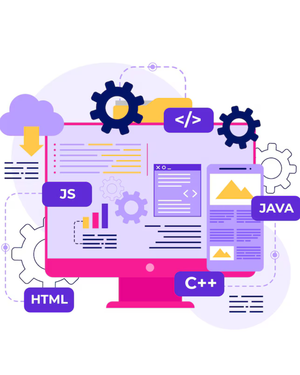The Role of APIs in Modern Software Development
الجسم
In the dynamic realm of technology, APIs (Application Programming Interfaces) have become indispensable tools in modern software development. These digital bridges enable different software systems to communicate, fostering innovation and efficiency. This article explores the pivotal role of APIs in contemporary development practices, emphasizing how they enhance the capabilities of a software development company in New York and beyond.
What Are APIs?
APIs are sets of protocols, routines, and tools that allow different software applications to interact. They define methods of communication between various software components, enabling developers to access web-based services and applications seamlessly.
Historical Context
The concept of APIs dates back to the 1960s, but their significance has grown exponentially with the advent of the internet and web services. Initially, APIs were used for local software interactions, but today they play a critical role in web development, cloud computing, and mobile applications.
Types of APIs
- Open APIs: Publicly available and accessible to any developer. Examples include the Google Maps API and Twitter API.
- Internal APIs: Used within an organization to enhance productivity and streamline processes.
- Partner APIs: Shared with specific business partners to facilitate B2B interactions.
- Composite APIs: Combine multiple API calls into a single request, improving efficiency.
Advantages of Using APIs
APIs offer numerous benefits, making them essential for any software development company in New York aiming to stay competitive. Key advantages include:
- Efficiency: APIs enable developers to leverage existing functionalities, reducing development time.
- Scalability: APIs support the integration of new features without overhauling the existing system.
- Flexibility: APIs allow developers to create modular applications that can adapt to changing business needs.
- Innovation: By providing access to external services, APIs spur innovation and new business opportunities.
APIs and Web Development
In web development, APIs facilitate the creation of dynamic and interactive websites. They enable the integration of third-party services such as payment gateways, social media platforms, and analytics tools. For a software development company in New York, utilizing APIs can significantly enhance the user experience and functionality of their web applications.
APIs in Mobile Development
Mobile applications rely heavily on APIs to access various functionalities and services. APIs allow mobile apps to interact with back-end services, retrieve data, and provide real-time updates. This seamless integration is crucial for creating efficient and responsive mobile applications.
Cloud Computing and APIs
APIs are the backbone of cloud computing, enabling the interaction between different cloud services. They allow developers to access cloud resources, manage databases, and utilize various cloud-based tools. For a software development company in New York, leveraging cloud APIs can lead to cost-effective and scalable solutions.
APIs in Microservices Architecture
Microservices architecture breaks down applications into smaller, manageable services that communicate via APIs. This approach enhances scalability and flexibility, allowing developers to update or deploy individual services without affecting the entire application. APIs are thus fundamental in modern software architecture, enabling seamless interactions between microservices.
Security Considerations
While APIs offer numerous benefits, they also pose security challenges. Ensuring secure API interactions is crucial to protect sensitive data and prevent unauthorized access. Implementing robust authentication, authorization, and encryption mechanisms is essential for safeguarding API communications.
Best Practices for API Development
- Versioning: Implement version control to manage changes and updates without disrupting existing services.
- Documentation: Provide comprehensive documentation to help developers understand and use the API effectively.
- Error Handling: Implement robust error-handling mechanisms to ensure reliable API interactions.
- Rate Limiting: Control the number of API requests to prevent abuse and ensure fair usage.
Future of APIs
The future of APIs looks promising with advancements in AI, IoT, and blockchain technologies. APIs will continue to evolve, offering more sophisticated and secure ways for software systems to interact. For a software development company in New York, staying abreast of these trends is crucial to maintaining a competitive edge.
Conclusion
APIs have revolutionized modern software development, providing the building blocks for creating innovative, efficient, and scalable applications. For a software development company in New York, leveraging APIs is not just an option but a necessity to stay competitive in a fast-paced technological landscape. As APIs continue to evolve, their role in shaping the future of software development will only become more significant.










تعليقات